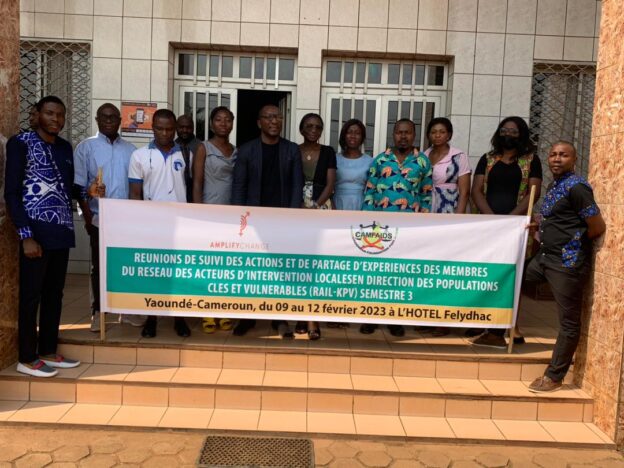In line with a series of activities to mark World Antimicrobial Week, Health Experts from some French-speaking countries under the initiative of Pfizer, entertained 40 journalists in a virtual media roundtable that took place on Wednesday, 15th February 2023.

To build media practitioners’ awareness and upskilled them on Antimicrobial Resistance, AMR, a virtual media roundtable discussion was organized on February 15, 2023, by multinational pharmaceutical and biotechnology company, Pfizer Inc.
The session that regrouped close to 40 journalists from Cameroon, Cote d’Ivoire, Senegal, and Burkina Faso enters within the framework of a series of activities to mark world antimicrobial week come November 18 to 24.
As indicated in the course of the virtual session launched by host organization, Pfizer, governments and public health communities have to support the numerous actions carried out by pharmaceutical firms, and by the way, they have a crucial role to play in advancing science and innovation, to boost development.
Journalists were schooled on AMR by two renowned health experts, Pr. BAMBA-PAKOTOGO Sanata from Burkina Faso and Pr Guessennd-Kouadio Aya Nathalie from Côte d’Ivoire.
According to Health Experts, antimicrobial resistance happens when germs like bacteria and fungi develop the ability to defeat the drugs designed to kill them. That means the germs are not killed and continue to grow. Resistant infections can be difficult, and sometimes impossible, to treat.
Need to curb the spread
As outlined by the two main speakers, the more an antibiotic is used, the more chance bacteria have of developing resistance. It was equally disclosed during the session that, AMR is one of the biggest threats to global health today, with an estimated 700,000 deaths per year.
In her presentation, Professor BAMBA-PAKOTOGO Sanata said: “Antimicrobials are among the most valuable medical resources the world has ever known; it is alarming that they are losing their effectiveness. Given the low public awareness of, the dangers of AMR, it is the responsibility of the medical community to educate patients about the alarming situation. Like COVID-19, AMR pathogens can spread far and quickly, affecting people of all ages. It is important to institute public health, prevention and surveillance measures to curb its spread.”

On her part, Professor Guessennd-Kouadio Aya Nathalie added: “With a high cost to individual health and the economy in general, AMR is a critical risk if left untreated. If the AMR pathogens spread as COVID-19 did, we will face another public health crisis. The roundtable organized by Pfizer and similar forums is essential to raise awareness of the threats we face if we do not invest now to prevent AMR.”

Pfizer committed to controlling AMR
Speaking at the virtual session, Dr. Sylvie Kounde, Chief Medical Officer for French-Speaking Sub-Saharan Africa at Pfizer said: “AMR, if left unchecked, could lead to a scenario where minor infections become life-threatening and severe infections become impossible to control and treat.”

Dr. Kounde stressed on the fact that Pfizer remains committed to the provision of effective and long-lasting solutions.
She said: “Despite the many challenges associated with the development of new anti-infective molecules, Pfizer remains committed to providing effective new therapies that target new, emerging, difficult-to-treat infections. We also remain committed to patients with infectious diseases.”
She added: “In 2020 alone, 28 million patients were treated with anti-infective treatment from Pfizer – a number that is constantly growing.”
Pfizer is an American multinational pharmaceutical and biotechnology corporation that develops and produces medicines and vaccines for immunology, oncology, cardiology, endocrinology, and neurology.
Elise Kenimbeni




